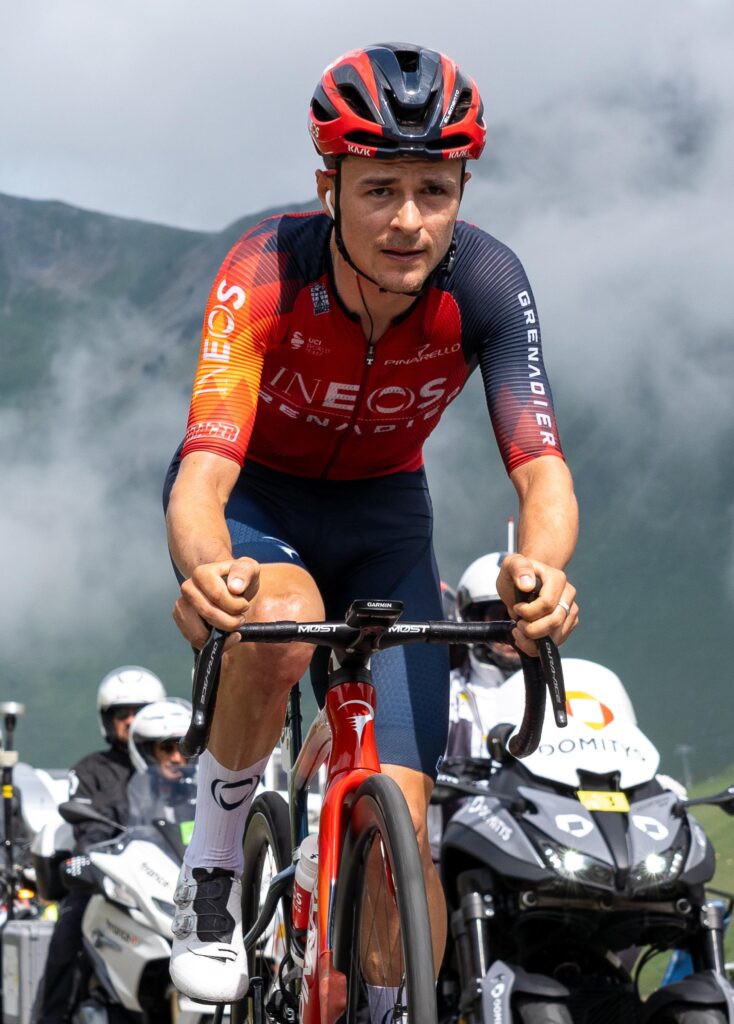In a significant development ahead of the upcoming World Championships, Tom Pidcock, Oscar Onley, and Anna Henderson have been selected to spearhead the Great Britain cycling team. This trio of standout athletes reflects the nation’s commitment to success on the global stage. However, the notable absence of elite women competitors in the road race has raised eyebrows and sparked discussions about the strategic direction of British cycling. As the championship dates draw near, all eyes will be on these athletes to deliver impressive performances, while the broader implications of the missing elite women will undoubtedly dominate conversations around the event.
Tom Pidcock and Oscar Onley Selected to Headline Great Britain’s World Championship Cycling Team
In a bold move for the upcoming World Championships, Great Britain will be represented by a powerhouse lineup featuring Tom Pidcock and Oscar Onley as the primary riders. Pidcock, who has shown exceptional prowess in cross-country mountain biking and road racing, will look to leverage his diverse skill set to secure podium positions in the elite fields. Meanwhile, Onley, a rising star in the cycling world, brings his impressive climbing abilities and tactical acumen, ready to make his mark on an international stage.
Despite this promising male roster, the absence of elite female riders in the road race has raised eyebrows among fans and pundits alike. This decision has sparked conversations around gender representation in cycling and the challenges faced by women’s teams. In light of this, the squad includes rising talents like Anna Henderson, who will compete across different disciplines, highlighting the depth in British women’s cycling, even as they face challenges on the road race front. The team is expected to focus on strategic collaboration to maximize their results and capitalize on the strengths of each athlete.
| Rider | Discipline | Notable Achievement |
|---|---|---|
| Tom Pidcock | Cross-Country, Road | World Champion in Mountain Biking |
| Oscar Onley | Road | Under-23 National Champion |
| Anna Henderson | Road, Track | Medalist in European Championships |
Analysis of the Absence of Elite Women in the Road Race Event
The decision to exclude elite women from the road race event at the World Championships has sparked conversations around gender representation in competitive cycling. Observers note that while male athletes like Tom Pidcock and Oscar Onley will proudly don the Great Britain jersey, the absence of elite women raises questions about the sport’s commitment to inclusivity and support for female cyclists. This striking discrepancy not only highlights the ongoing challenges women face in gaining equal footing within the cycling community, but it also risks sidelining the growing talent pool of female athletes who have proven their mettle on international stages.
Critics emphasize that the lack of representation in such a prominent event could have long-lasting implications. The Great Britain team has historically boasted strong female cyclists, yet the decision to forgo their presence this year may be indicative of broader systemic issues that contribute to the underinvestment in women’s cycling programs. Potential factors affecting this decision include:
- Funding disparities: Limited resources allocated to female athletes.
- Media visibility: A lack of coverage that diminishes public interest and support.
- Coaching and development: Insufficient pathways for emerging female talent to progress to elite levels.
Such omissions from high-profile events demand urgent attention from governing bodies, emphasizing the need for systemic changes to ensure equal recognition and opportunity for all athletes, regardless of gender.
Implications for Future Competitions and Recommendations for Gender Representation in Cycling
The recent decision to exclude elite women from the road race at the World Championships casts a stark light on gender representation within competitive cycling. This omission not only raises questions about the commitment to promote equality in sports but also highlights the need for governing bodies to reassess their strategies and policies. As the sport evolves, it is imperative that competitions strive for inclusivity, ensuring that female athletes are provided with equal platforms to showcase their talent and contribute to the sport’s legacy. Key stakeholders, including sponsors, teams, and race organizers, must advocate for structural changes that prioritize gender equity, which could encompass the following:
- Equal funding for men’s and women’s events to enhance visibility and support.
- Increased media coverage of women’s races to drive fan engagement and interest.
- Clearer pathways for women to enter elite competition, including mentorship programs.
Furthermore, future competitions should consider implementing policies that facilitate a balanced representation of genders. This could include adopting a quota system or mandatory host guarantees that ensure women participate in marquee events. Collaboration with public figures and organizations advocating for gender equality can amplify these efforts, leading to broader societal change. To measure progress effectively, organizing bodies should track participation rates, audience engagement, and sponsorship growth for women’s events commonly featured at championship levels. The table below summarizes potential targets for enhancing gender representation in competitive cycling events:
| Target Area | Proposed Goals | Timeline |
|---|---|---|
| Funding | Equalize funding for men’s and women’s events | 2025 |
| Media Coverage | Increase coverage hours for women’s races | 2024 |
| Participation | Implement quotas for women in elite competitions | 2023 |
In Retrospect
In conclusion, the selection of Tom Pidcock, Oscar Onley, and Anna Henderson to represent Great Britain at the upcoming World Championships marks a significant moment for British cycling. Their inclusion highlights the nation’s investment in rising talent and the potential for success on the international stage. However, the absence of elite women in the road race casts a shadow over this achievement, raising questions about the broader implications for gender representation in the sport. As the championships approach, all eyes will be on these athletes to see if they can deliver results that not only honor their selection but also inspire a more inclusive future for cycling in Great Britain. The event promises to be a showcase of both emerging talent and the ongoing challenges within the cycling community.











